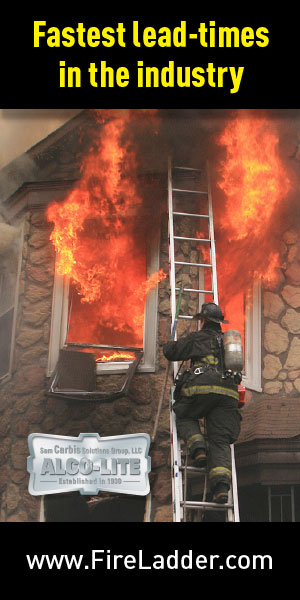More than 30,000 incidents involving unwanted fire alarm signals were attended by firefighters across Scotland last year – the equivalent of around 80 a day.
The figure has been revealed as the Scottish Fire and Rescue Service gets ready to change the way it responds to unwanted fire alarm signals (UFAS) to commercial business and workplace premises.
From 1 July, 2023 an alarm activation will require those with fire safety responsibility, known as dutyholders, to investigate the cause of an alarm and only call 999 once a fire has been confirmed. This approach is already embedded across several other UK fire and rescue services, who require a confirmed fire before they send fire appliances.
The change in response will affect all premises and businesses who do not provide sleeping accommodation. Hospitals, care homes, hotels, student accommodation and domestic dwellings will continue to receive the current level of emergency response.
Workplaces are being reminded to provide adequate training for staff on the new process and put in place fire safety provisions.
Assistant Chief Officer (ACO) David Farries is the SFRS Director of Service Delivery.
He said: “As we approach July, we need our business community and dutyholders to ensure they are fully aware of the imminent changes to the way we will respond to unwanted fire alarm signals.
“We will continue to work with dutyholders to help them better understand their obligations, but I must stress the importance of having adequate training in place for staff and ensuring appropriate fire safety provisions are in place within business premises.
“We have a wealth of supportive information on our website, and I would strongly recommend dutyholders familiarise themselves with this guidance, if they have not already done so.”
Unfortunately, most signals from automatic fire alarm systems are not actual fires – they are false alarms often caused by cooking fumes, dust or a lack of maintenance. This means our fire crews are called out unnecessarily.
This change in response to unwanted fire alarms creates capacity for operational crews to respond to real emergencies, whilst reducing the road risk and the impact on the environment caused by fire appliances making unnecessary blue light journeys.
ACO Farries added: “By changing our response to these types of incidents, we can potentially free up 64,000 hours every year giving firefighters more time for other activities, such as training and fire safety prevention work.
“However, there are benefits to businesses too by preventing these incidents from happening in the first place. On average, every unwanted fire alarm signal interrupts business for around 27 minutes each time.”
Educational premises are typically one of the largest sources of unwanted false alarms in non-sleeping premises. Last year, primary and secondary schools, as well as colleges and universities, registered more than 4,500 unwanted fire alarm signals – accounting for one in every six incidents.
Figures also show that businesses including call centres, offices, pubs and restaurants are also consistently attended by crews. Offices and call centres alone were subject to more than 2,500 UFAS calls during 2022. Shops and single retain units recorded more than 800 incidents and pubs and bars registered more than 600.


